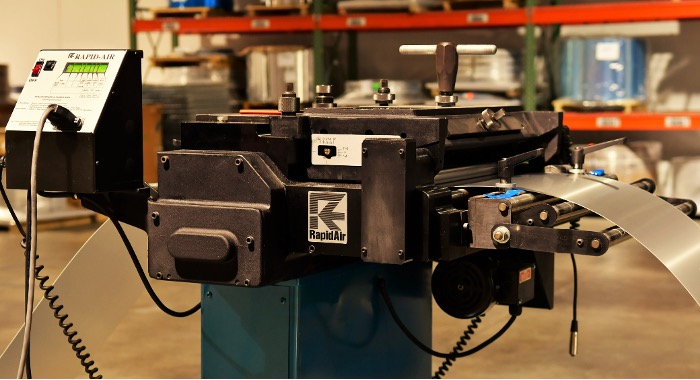
The use of aluminum slit sheets, rolls, and coils has immensely increased in the automotive, cookware, pharmaceutical, construction, electronics, and cosmetic packaging industries. However, it’s important to understand that aluminum processing is prone to product deformation for several different reasons. With that said, the NKS aluminum slitting specialists in Austin, Texas are here to share insights on how you can prevent aluminum deformation when slitting the material.
Aluminum Deformation Causes
There are many reasons for aluminum deformation, most of which are related to the production conditions, material quality, and the shape in which aluminum parts are processed in Austin, Texas. However, the top three causes include:
- Clamping force
- Cutting force or heat
- Internal stress
In most cases, deformed products do not reach the final assembly stage. Manufacturers adopt different approaches to reduce machining distortion for aluminum products and achieve their ideal processing purposes efficiently.
Tips to Reduce Aluminum Deformation
Aluminum is a durable and versatile industrial material but can easily become damaged upon machining. Below, our aluminum slitting experts in Austin, Texas are going to share five tips to help you reduce material deformation as much as possible.
Reduce Internal Stress
Deformation can be more extensive with fat blank heads that contain enormous margins. To reduce processing distortion, you should pre-process the excess portion of the blank and decrease the margin. Pre-processing also helps lessen the internal stress of the workpiece.
Improve Clamping Method
For thin-walled pieces with insufficient rigidity, you can reduce deformation by adjusting the clamping techniques. Use vacuum suction cups to distribute the clamping force evenly. Process with smaller cuts to prevent the part’s distortion. If you utilize a scroll or spring chuck to hold onto the workpiece, remember that it can loosen and affect machining accuracy. In this case, firmly press the axial end face and tighten it with a nut. In addition, you may try filling the workpiece with a urea melt. After processing the workpiece, soak it in alcohol to dissolve and pour out the filler.
Readjust Cutting Parameters
Decrease the cutting force and the resulting heat by deciding on appropriate cutting parameters. When treating the workpiece with mechanical processing, parameters larger than standard limits may lead to greater cutting forces. It causes damage to the parts, reducing their durability, and reducing the rigidity of the machining equipment. Factors like reduced back cutting depth, improved machine speed, and increased feed guarantee better processing efficiency.
Arrange Processes Reasonably
With large machining allowances, vibrations are produced during high-speed cutting processes. The fluctuations can impact the surface roughness and accuracy. Therefore, to obtain good surface machining quality, ensure precision, and shape the workpiece towards the finished form, you will have to adjust the machining operations. For instance, parts that demand higher accuracy would first require applying semi-finished processes and completing with finishing operations. After roughing, cool the parts naturally to eliminate internal stress and minimize deformation.
Use the Right Bit Size
To machine the pieces with a cavity, do not penetrate the cutter into the part like a drill. It may result in rough chip removal, insufficient chip space, overheating, part expansion, tool breakage, etc. It is best to use a bit that is the same size as the cutter and mill it down.
Looking for Stainless Steel and Aluminum Slitting Services in Austin, Texas? NKS Can Help.
By keeping the tips explained above in mind, you will be able to address your manufacturing processes with better efficiency. However, to form parts accurately and without damaging them, you’ll also want to invest in high-quality, commercially suitable aluminum coils, sheets, or rolls.
At NKS, our aluminum slitting experts have been serving clients in Austin, Texas for years. You can view our entire range of aluminum and other alloys here.
We are one of the most trusted nonferrous service centers specializing in aluminum slitting and CTL blanking processes. Please feel free to visit our website and request a quote, or call us at 1800-722-5029 (toll-free) today to discuss your aluminum needs.